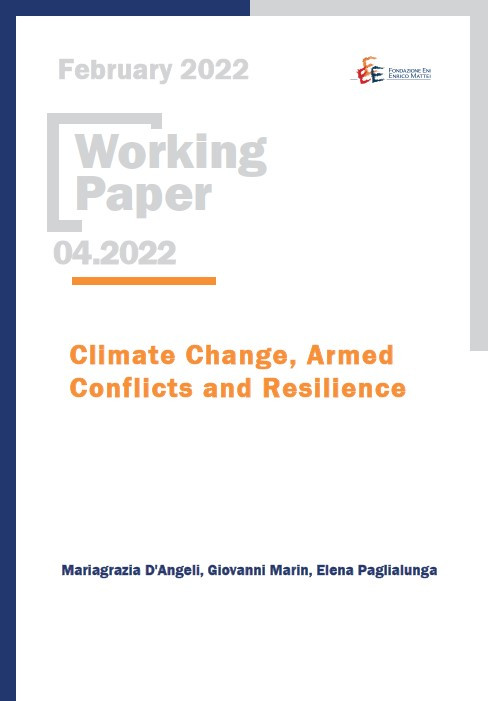Climate Change, Armed Conflicts and Resilience

03.02.2022
Mariagrazia D’Angeli (Department of Economics, Society and Politics, University of Urbino Carlo Bo); Giovanni Marin (Department of Economics, Society and Politics, University of Urbino Carlo Bo); Elena Paglialunga (Department of Economics, Society and Politics, University of Urbino Carlo Bo)
D74, O13, Q54
Resilience, Armed Conflicts, Natural Disasters, Climate Change
In recent years, there has been rapid development of the literature linking climate change and armed conflicts. Although no conclusionary evidence has been found of a direct link between climate change and armed conflicts, still climate change has been addressed as an important trigger, exacerbating underlying social, economic and institutional conditions and thus resulting in higher risk and magnitude of violent activities. In this context, while more research is needed to further disentangle how climatic changes combine with socio-economic and institutional elements to induce conflicts, an important pathway to be explored is the role that building resilience can play in preventing and/or breaking the negative relationship between climate change and violent activity. In this context, resilience refers to the capacity of a system to come back to its original conditions after a shock and relies on the combination of socioeconomic, institutional and technological dimensions. In our paper we provide empirical evidence on the role played by resilience-building investments in attenuating the emergence of armed conflicts as a consequence of climate-related anomalies and natural disasters.
***
Suggested citation: M. D’Angeli, L. Campbell, G. Marin, X. E. Paglialunga, (2022), ‘Climate Change, Armed Conflicts and Resilience’, Nota di Lavoro 04.2022, Milano, Italy: Fondazione Eni Enrico Mattei
